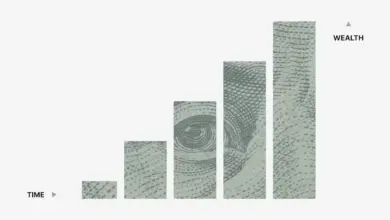- What Is a Tax Lien?
- How tax lien investing works
- Benefits and Risks of Investing in Tax Lien Certificates
- How Can I Invest in Tax Liens?
- Tips for Tax Lien Buyers
What you need to know before jumping into Tax lien investing
Please Note: This relates to US Investing.
Most investors tend to look down on a particular investment niche which is, property tax liens. The increasing unpredictability of the stock market, alongside historically low-interest rates, has several investors finding this type of other option to provide a reasonable return rate. In most cases, this special opportunity can offer smart investors astonishing return rates.
Property liens can also carry substantial risk, which means novice buyers need to understand the rules and potential pitfalls that come with this type of asset. This article discusses tax liens, how you can invest in them, and the disadvantages of this type of investment vehicle.
What Is a Tax Lien?
A tax lien is a legal claim against an individual’s property or business that didn’t pay taxes owed to the government. For instance, when a landowner or homeowner refuses to pay the taxes on their property, the city or county in which the property is situated has the right to place a lien on the property. The lien serves as a legal claim against the property for the unpaid amount owed by the individual. It’s impossible to sell or refinance a property with a lien placed on it until the taxes are paid, and the lien is being removed.
After a lien is issued, the municipality generates a tax lien certificate that shows the amount owed on the property, including any due interest or penalties. These certificates will later be auctioned to the highest bidding investor. Investors can buy tax liens for as low as a few hundred dollars, provided it’s a small property. But, the bigger ones cost more.

How tax lien investing works
Once a municipality issues a tax lien to a past-due property owner, they’ll generate a tax lien certificate that shows how much taxes is owed, together with penalties and interest.
In recovering the debt tax, municipalities can sell the certificate to private investors, who manage the tax bill in exchange for the right to collect the property owners’ money, including interest, after they’ve paid their balance.
Currently, about 28 states allow the assignment and transfer of delinquent real estate tax liens to private sectors, based on the National Tax Lien Association. This nonprofit organization represents the government, institutional tax lien investors, and services. Written below is process is like:
1. Investors must bid for the tax lien in an auction
Tax lien investors must bid for the certificate in an auction, and the process works based on the specific municipality. Would-be investors can begin by getting familiar with the local area, suggested by the National Tax Lien Association. To find about the collection of delinquent taxes, contact the tax officials within your area.
Auctions can be done virtually or in person. At times, the winning bids go to the investor who wants to pay the lowest interest rate through a method referred to as “bidding down the interest rate.” The municipality sets up a maximum rate, and the bidder requesting the lowest interest rate lower than the maximum wins the auction. Remember that, as interest rates fall, so do profits.
Other winning bids are for people who pay the highest cash amount or premium, that’s more than the lien amount.
2. The winning bidder pays the balance and handles foreclosure proceedings
What the investors experience next isn’t something that happens on a stock exchange. The winning bidder must pay the whole tax bill, and the delinquent debt, interest, and penalties. Then, the investor must wait till the property owners pay off their entire balance, except they don’t.
Most homeowners have a “redemption period,” it’s generally about one to three years before they’re allowed to pay the entire taxes and interest. But suppose the homeowner didn’t return the tax debt. In that case, the tax lien investor will be responsible for starting the foreclosure process, which will enable the investor to take on the ownership of the property.
If you win a lien at auction, you must learn your responsibilities. For instance, Joanne Musa, a tax lien investment consultant and founder of TaxLienLady.com, stated that in Illinois, within four months of buying a lien, you must inform the property owners that you purchased the lien and can foreclose if they don’t payback. After which, another letter must be sent before the redemption period ends.

Benefits and Risks of Investing in Tax Lien Certificates
Benefits
May only require a few hundred dollars in purchasing the tax lien certificate.
It can diversify by buying certificates of different properties and locations.
Regular return rate.
Risks
Homeowners may not pay if the property’s market value is lower than taxes due.
The homeowner may not recover the property, irrespective of its value.
Once the lien expires, you can’t collect any unpaid taxes, and your lienholder rights automatically expire.
Benefits Explained
These investments usually have a low threshold for buying in. You can purchase tax lien certificates at auction with a few hundred dollars. However, purchasing a rental property may require taking on a mortgage. Even real estate investment trusts (REITs) may need lots of thousand dollars to buy in.
Having a smaller initial investment makes it possible to spread capital across several tax lien certificates. This enables you to diversify within the real estate asset range by buying certificates located in several housing markets or certificates for commercial properties and residential ones.
From an earnings view, you get regular return rates. With tax lien certificates, returns are according to the interest rate property owners are paying you. If you hold a tax lien certificate in a state having a maximum interest rate, your investment could produce a substantial payoff.
For instance, Florida’s maximum interest rate is about 18%, while Arizona’s maximum rate is 16%. None of them can assist you in earning more than you might in a fund that tracks an index such as the S&P 500, based on the stock market state.
Tax lien certificate interest rates are being applied using a simple interest formula instead of compound interest.
Risks Explained
Similar to other investments, tax lien certificates take certain risks.
The major one to be aware of is buying tax lien certificates for properties whose market value is lower than the amount of taxes due. Based on this, the homeowner may not be encouraged to pay what’s owed.
Also, there’s a standard risk that the homeowner won’t regain the property, irrespective of its value. A foreclosure can let you take over the ownership of the property, but the legal fees can be costly. Should that happen, you may be faced with extra costs to renovate the house after you’ve gained ownership. Also, foreclosing can be challenging if some other liens or claims must be cleared before you can assume the title of ownership.
Tax liens have an expiry date which is after the redemption period. Once your lien expires, you can’t collect any unpaid taxes because your rights as a lienholder expired with the tax liens. You’d have to buy any subsequent liens to preserve your rights; else, another investor can claim the property.
Based on the location, there may be lots of rules concerning communicating with the property owner. They must inform the property owner that they have bought the tax lien certificate. Also, when the redemption period is coming closer, they must inform the owner.
How Can I Invest in Tax Liens?
Investors can buy property tax liens the same way standard properties are being sold and purchased at auctions. The auctions take place virtually or physically, and investors can bid down on the interest rate on the lien or bid up a premium they will pay for. Any investor that accepts the lowest interest rate or pays the highest premium receives the lien. Most times, they get into bidding fights because of a given property, which drives down the return rate that the winning buyer reaps.
Buyers of tax liens properties must be aware of the repair costs, in addition to another price they may have to pay once they take on the ownership of the property. Then, the owners of these properties may have to address unpleasant tasks, like eliminating the present occupants, which may need a property manager or an attorney.
Anyone who wants to buy a tax lien must begin by deciding on the type of property they’d want to hold a lien on like, commercial, undeveloped land, residential, or property with improvements. After which, they can contact their city or county treasurer’s office to know where and how the next auction will be held. The treasurer’s office will inform the investor about where to get a list of property liens that will be auctioned and the rules on how the sale will be conducted. These rules will describe any preregistration requirements, accepted payment methods, and other relevant information.
Tips for Tax Lien Buyers
Buyers must perform their research on available properties. In some cases, the present value of the property may be lesser than the lion’s amount. The NTLA considers dividing the face amount of the delinquent tax lien by the property’s market value. If the ratio is above 4%, buyers should stay away from that property. Also, there may be other liens on the property that can hinder the bidder from owning it.
In a county with a tax lien, every aspect of real estate is allotted a number within its parcel. Buyers can search for these liens by number to gain more information about them from the county, which can be achieved online. For each number, the county possesses the name of the owner, the property address, the legal description, the assessed value of the property, and a breakdown of the state of the property and other structures on the premises.
Never invest in tax liens hoping that you will get property from it; about 98% of homeowners regain their property before the foreclosure begins.
How to Profit From a Lien
Investors who desire to locate tax lien investing opportunities should contact their local tax revenue official in charge of collecting property taxes. Presently, about 2,500 jurisdictions, cities, townships, or counties sell public tax debt.
Not all state offers the public sale of delinquent property taxes, if the state allows the public auction of the unpaid property tax bill, investors can determine when and where these taxes will be published for public review. Property tax sales must be advertised for a stated time before the sale. The advertisements include the list of the property owner, the legal description, and the amount of delinquent taxes to be sold.
Bottom Line
Tax liens can be a viable investment option for experienced investors familiar with the real estate market. Wise and intelligent people take their time to research the properties upon which they purchase liens that will generate substantial profits over time. But, the potential risks make this arena unsuitable for unsophisticated investors.
Without proper and adequate research and a deep understanding of the real estate market, an investor could easily purchase a property that the owner won’t retain (through the medium of them paying their taxes to you with interest), which has no value. Then the low-value property will eventually end up as the property of the investor.
For people keen and interested in investing in real estate, buying tax liens is one option. However, buying a home at a foreclosure or buying a home at an auction will be valuable investment opportunities.




